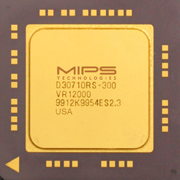
Lady Death is a fictional wicked woman, appearing in American comic books published by Eternity Comics . Created by Brian Pulido and Steven Hughes , Lady Death first appeared in Evil Ernie #1 in December 1991, while Lady Demon came about when Lady Death realizes she is a mistress of puppet , and all her life in hell is all a plan by Lucifer. So bored, and frustrated, the journey of self realization was so traumatic that her demonic person came to a life of its own. So Lady Death became Lady Demon , and true wicked blood stories came.
There is an episode, Lady Demon was looking for a body to inhabit, otherwise she would be pulled back to Hell. She found one woman who has killed her husband and then herself. This body suits Lady Demon better than the last one. So hidden inside a human body, she became a free witch. The body to inhabit belonged to a she-lawyer.
Does Lady Death really exist? Did she really exist? Let's ask the Science about!

Lyudmila Pavlichenko was called " LadyDeath "
For all the devils of the Hell, the Science has found a match , even if I believe there is a misunderstanding, she is not THE " Lady Death " whose story is a good way to learn English, that's an other story which reaches a more violent and bloody peak during the World War , a true horrors being wrought upon everything, including their own life, the freedom, the honor, everything may be lost forever.
Ukraine's Crimea peninsula during World War Two , battle for Sevastopol in May 1942. A key port city on the Black Sea, came under attack from five Nazis divisions, supported by Luftwaffe bombardments. Lyudmila Pavlichenko was sent to the frontline in 1941 at the age of 25 after being trained as a sniper, and she is said to have killed no fewer than 309 Nazis during the siege of Odessa and later the strategic city of Sevastopol on Ukraine's Crimean peninsula .
The close up shot of newspaper section politics got shot at title " Lady Death: the nazi killer who become guest of U.S. president "
So we have a proof, the science has demostrated that Lady Death, actually existed , but what about Hell ? The science is now wondering the reason why also Hell exists, because a proof of the Hell existence is the following
Code: Select all
void reset()
{
void *jump[] = { halt, soft_reset };
/*
* what the frog is this ? assembly branch?
* looking at the asm level
* it is translated into "bra address"
* which is an uncodnditional branch
* it's not a function call
* so what about the stack?
* no doubt it gets compromised
* does it make sense? so why they allow this crap?
* oh, just to invoke the soft_reset
* so it really makes sense
*/
goto *jump[1];
}
Code: Select all
void soft_reset()
{
/*
* hAllo, buddy
* the stack is now compromised, completely gone
* but don't worry I am the machine reset
* see you later, reset is coming ^_^
*/
die(); /* Just kidding! Say hAllo to lucifer, you are going to pass through Hell */
}
and .. it's not a comics, sadly the Truth ... GCC implements the "goto" and the above wicked code is perfectly compiled without a warning, the demonic person of gcc came to a life of its own, gcc came to a life of its own, Hell in town, Hell in console, Gcc is looking for a body to inhabit and if you try to execute the above code on a bareboard machine (without an OS that can handle memory protection), you will see how deep Hell's throat goes. May you save your *** from the suicide rabbit.

never follow the suicide rabbit down into Hell's hole
corollary : GNU guys are really wicked , more maleficient than Lucifer (even if their girls are less sexy than Lady Death , of course, except girls in BSD, which are really sexy witches), I suspect that only devils hidden inside a human body could think such a maleficent.

never follow the suicide rabbit down into Hell's hole, even if you are tempted to escape away from Gcc
my humor, I am upset by the code I've seen: can I pay now someone to cut mr Stallman 's beard ?
Can I offer him a copy of Lady Death as motivation to remove the above wicked-goto-feature from GCC?
I wish I could enter into the
vegetable garden
of
William Gibson
, on the right of a director, to decide how a film is ultimately released for public viewing, but I am not a nor
Cyberpunk writer
neither a dude in
Hollywood
, and my *
flawless English
* still looks like an old rusty trailer which needs a fix-up, so my personal
wonderland
begins with a pill ... tumbling down the
rabbit hole
, where the sky above the router port is the color of television, tuned to a dead channel and some gears still need a debugger there.



















 <- MicroVAX 3500
<- MicroVAX 3500
 <- MicroVAX 3300
<- MicroVAX 3300


 Octane 2, Dual 600MHz R14k's, 2GB, v12
Octane 2, Dual 600MHz R14k's, 2GB, v12






